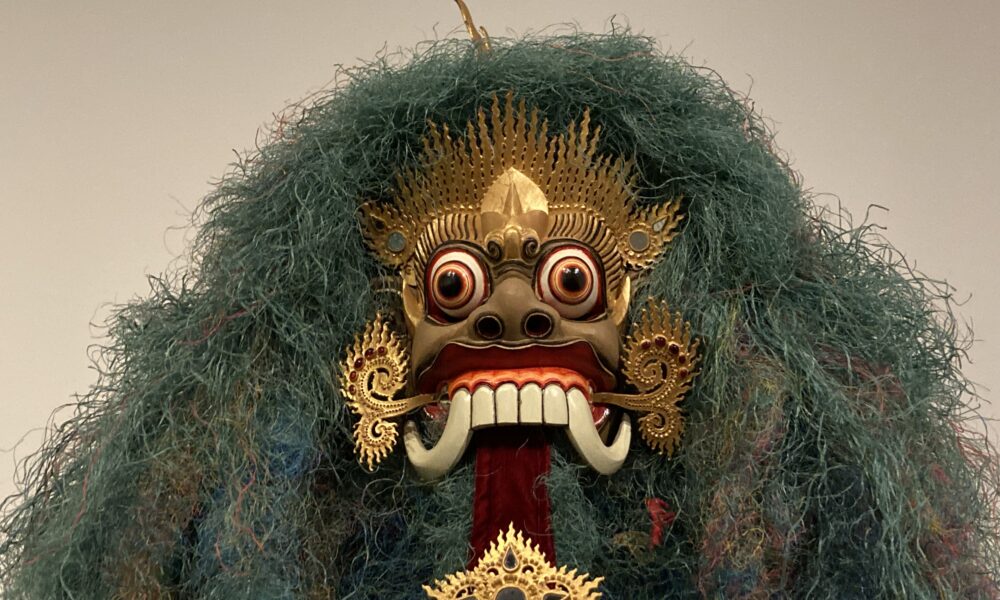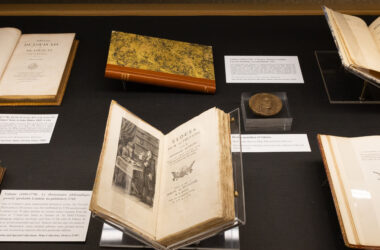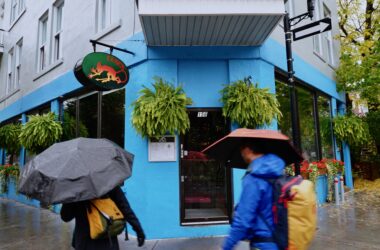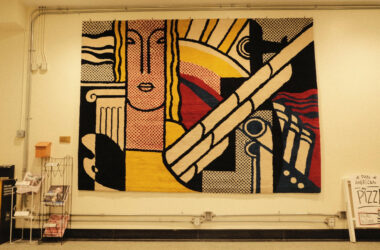In a world where scrolling past tragedy has become routine, the Montreal Museum of Contemporary Art’s (MAC) latest exhibition Comfort and Indifference asks us to reflect on the human cost of ignoring suffering while surrounding ourselves with comfort. On view at the Montreal Museum of Fine Arts, which made one of its exhibition spaces available to the MAC during its renovation, it features works by 22 Quebec artists.
Drawing on Denys Arcand‘s 1981 documentary bearing the same title, the exhibit explores the connection between past and present social detachment. Quebec’s first referendum on independence was held in May 1980; Arcand’s film, released a year later, traces the province’s struggle for political sovereignty. More importantly, it highlights a broader phenomenon in which Quebecers, preoccupied with their material wealth, found themselves increasingly detached from political matters.
By defining success through ownership rather than social contribution and prioritizing personal gain over community well-being, they allowed lifestyle choices to shape political realities despite complaining about them. The exhibition similarly examines this shift from collective values to individual priorities, prompting us to reconsider our approach to worldwide crises.
Western societies have increasingly pursued individualism, with the escalating use of cell phones contributing to a growing sense of isolation and detachment from social injustices. At the heart of these privileged spheres remain politically detached individuals.
Through a selection of works temporarily on display, acquired by the MAC between 2020 and 2025, visitors encounter a wide range of pieces, each encouraging reflection on notions of comfort and indifference. On one exhibition wall, artist Joyce Joumaa presents five circuit breaker boxes that she transformed into light boxes. Inside each, she places photographs of various domestic or commercial spaces that illuminate at specific, predetermined times. This series of works reflects Lebanon’s energy crisis since the 1990s, which has worsened in 2021 due to the global oil shortage. Each box lights up according to the energy schedules of the places it depicts in the country, turning on when electricity is available and off when it is not.
The scale of these works ultimately prompts us to reconsider our material comfort and privilege while approaching it with a more considerate lens. Following this objective, artist Michel Huneault shares a piece from his series Roxham titled Sans titre 1. The series depicts the Royal Canadian Mounted Police intercepting asylum seekers on Roxham Road in Montérégie, a central point of unofficial entry from the United States, which is now closed. Huneault specifically uses fragments of images instead of photographs, adding a layer of anonymity and speculation to his reflection, emphasizing the human consequences of immigration policy.
Walking around the gallery evokes a range of emotions. The varied nature of the works leaves no fixed route to follow; instead, you drift from one piece to the next. Each work brings its own flavour and originality, inviting you to slow down, immerse yourself, and get to know the story behind it. From paintings to life-sized sculptures, the different mediums successfully provide a rich variety of ways to explore the exhibition’s key themes of comfort and indifference, inviting you to pause and reflect.
Comfort and Indifference does not offer simple answers or solutions. Instead, it leaves you with a series of lingering questions about what it means to feel comfortable while others bear the consequences. The exhibition suggests that indifference is never just a private feeling, but a position with real effects on other people’s lives. What we do with that realization is left up to us.
Comfort and Indifference runs until May 3rd, 2026.
A previous version of this article stated that the exhibition was one from the Montreal Museum of Fine Arts. In fact, the exhibition is organized and curated by the Montreal Museum of Contemporary Art, though it is on view at the Montreal Museum of Fine Arts. The Tribune regrets the errors.









